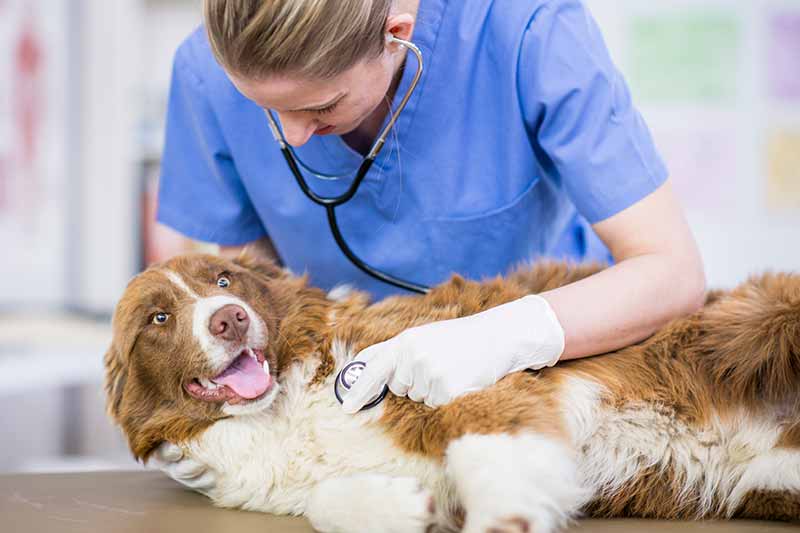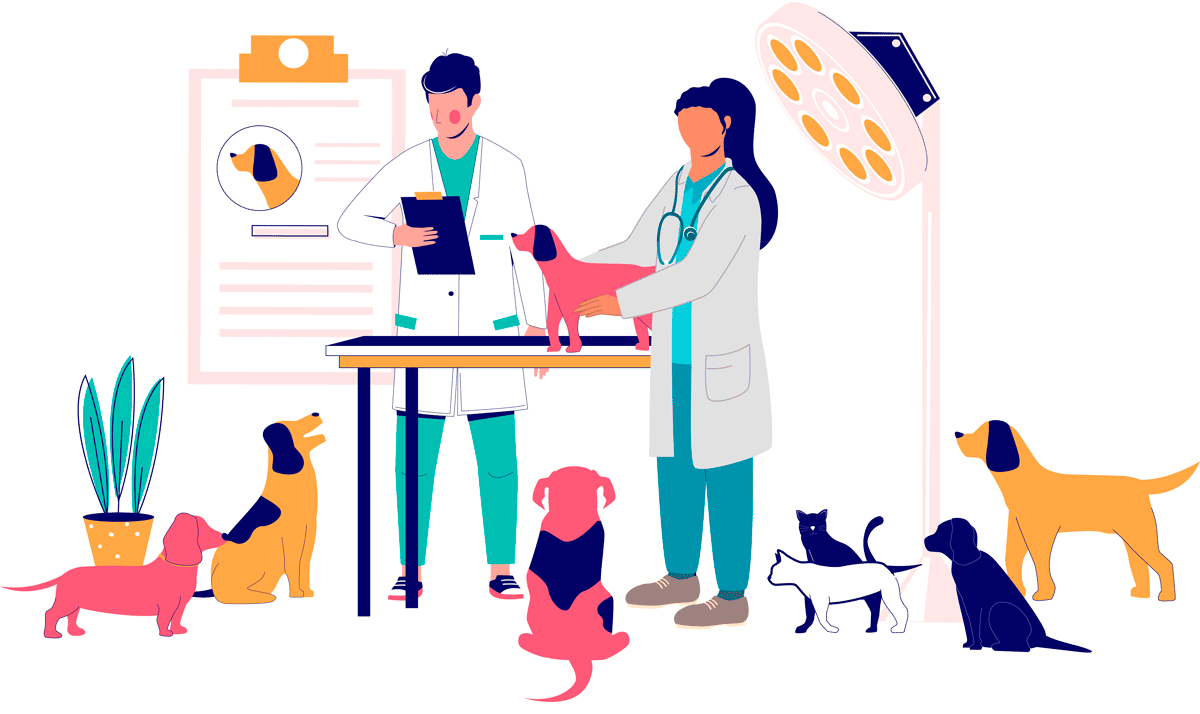Why Pet Cancer Surgery may extend your pet’s life
Wiki Article
Comprehensive Overview to the Solutions Offered by a Vet Oncologist
Veterinary oncology incorporates a broad selection of services targeted at dealing with and diagnosing cancer cells in animals. Pet Cancer Surgery. Oncologists utilize innovative diagnostic strategies and provide numerous treatment alternatives tailored to every pet's requirements. They additionally prioritize encouraging care and supply valuable resources for pet dog owners. Recognizing these services is vital for making educated decisions. What certain facets of veterinary oncology can significantly influence an animal's therapy trip?Understanding Vet Oncology
Veterinary oncology is a specialized field concentrated on detecting and dealing with cancer in animals. This self-control incorporates a variety of strategies, from medical treatments such as chemotherapy and immunotherapy to medical interventions aimed at eliminating growths. Vet oncologists are educated to recognize the distinct symptoms of cancer cells in numerous varieties, enabling them to tailor treatment plans to private clients.In enhancement to typical therapies, vet oncology stresses encouraging treatment, which plays an important function in improving the high quality of life for afflicted pets. This consists of pain administration, nutritional support, and palliative care choices. Partnership with animal proprietors is vital, as they are indispensable to decision-making concerning their family pets' therapy courses. As research study developments, vet oncology continues to develop, providing new hope and improved outcomes for pets detected with cancer cells. Generally, this field is fundamental for dealing with the complexities of cancer cells in buddy animals.
Advanced Diagnostic Techniques
Advanced diagnostic strategies play an essential duty in vet oncology, offering crucial insights right into the existence and extent of cancer in pets. Imaging methods such as ultrasound, CT scans, and MRI are frequently utilized to visualize lumps and analyze their features. Furthermore, biopsy procedures are very important for acquiring tissue examples, enabling definitive medical diagnosis and tailored therapy strategies.Imaging Modalities Utilized
Imaging techniques play a necessary function in the medical diagnosis and management of cancer cells in animals. Vet oncologists make use of different advanced imaging strategies to evaluate lump size, visibility, and metastasis. Radiography, or X-rays, provides an initial view of bone and upper body conditions, while ultrasound supplies real-time imaging of soft cells, enabling thorough examination of internal organs. Calculated tomography (CT) enhances visualization of complicated physiological structures and makes it possible for 3D reconstructions, helping in precise growth localization. Magnetic resonance imaging (MRI) is very useful for soft tissue distinction, particularly in brain lumps. Additionally, nuclear medication techniques such as positron discharge tomography (PET) assistance determine metabolic task within tumors. Collectively, these techniques boost analysis accuracy, assisting reliable therapy techniques for oncological individuals.Biopsy Treatments Explained
Following the preliminary evaluation via imaging methods, obtaining a definitive diagnosis commonly calls for cells tasting through biopsy procedures. Veterinary oncologists make use of numerous biopsy strategies based upon the tumor's location and attributes. Great needle ambition (FNA) is a minimally intrusive approach that removes cells for cytological exam, perfect for surface masses. Core needle biopsies give bigger cells examples and work for much deeper lumps, permitting for histopathological analysis. Surgical biopsies involve excising a section or the entire tumor, facilitating comprehensive assessment. These procedures not just verify the existence of cancer cells however additionally aid identify its type and grade, leading therapy decisions. Each biopsy method is selected carefully to balance analysis precision with client safety and convenience.Therapy Options for Cancer Cells in Animals
When a pet is identified with cancer, a range of treatment choices become readily available to help take care of the disease and boost lifestyle. Veterinary oncologists normally recommend a multidisciplinary technique customized to the private pet dog's needs, which might consist of surgical treatment, radiation treatment, immunotherapy, or alternative therapies.Surgical procedure is typically used to eliminate lumps and affected tissues, possibly bring about complete remission sometimes. Radiation treatment aims to target and ruin cancer cells, reducing growth dimension and alleviating signs - Pet Cancer Surgery. Immunotherapy utilizes the pet dog's immune system to combat cancer cells better, while alternative therapies may consist of acupuncture or organic supplements to support overall wellness
Each therapy choice brings its own benefits and risks, and vet oncologists function carefully with pet owners to develop a detailed strategy that aligns with the pet's particular diagnosis and the owner's wishes. The supreme goal is to enhance the pet's comfort and quality of life throughout their cancer journey.
Radiation treatment for Pets
Radiation treatment is a typical therapy alternative for pets detected with cancer cells and is usually made use of along with various other therapies described by vet oncologists. This therapy includes the administration of specific drugs designed to target and damage cancer cells, consequently minimizing growth size and protecting against the spread of the condition. Vet oncologists tailor radiation treatment methods based on the sort of cancer cells, the family pet's general health, and the wanted treatment outcome.Adverse effects can happen, as these drugs might likewise affect healthy and balanced cells. Typical reactions consist of queasiness, vomiting, and momentary modifications in cravings - Veterinary Oncology Services. Veterinary oncologists are furnished to manage these side results successfully, ensuring the pet dog's comfort throughout the therapy process. Normal monitoring via blood tests and follow-up consultations is important to analyze the animal's feedback to chemotherapy and make essential adjustments. Inevitably, chemotherapy can supply significant benefits, boosting the quality of life for family pets facing cancer medical diagnoses

Radiation Treatment in Vet Medicine
Radiation treatment acts as an effective therapy choice for animals diagnosed with local growths, providing a targeted approach to cancer cells administration. This technique uses high-energy radiation to damage the DNA of cancer cells, hindering their capability to multiply. It is especially advantageous for lumps that are not open to medical removal or for instances where surgical treatment might not be practical due to the growth's area.Veterinary oncologists customize radiation protocols based on growth type, dimension, and place, in addition to the pet's general wellness. Treatment can be provided using external beam of light radiation or brachytherapy, each with distinctive advantages. Commonly, multiple sessions are needed to make the most of efficiency while minimizing adverse effects.
Animals might experience momentary responses such as skin irritability, the overall aim is to diminish growths and ease signs and symptoms, inevitably improving the pet's prognosis and quality of life. Accordingly, radiation therapy plays a necessary function in detailed cancer cells treatment.
Palliative Treatment and Top Quality of Life
Palliative treatment in vet oncology concentrates on improving the lifestyle for family pets dealing with terminal health problems, making sure comfort and dignity in their final days. This specialized approach prioritizes pain management, sign control, and emotional assistance. Veterinary oncologists assess try this website each family pet's specific requirements, tailoring treatments to minimize pain and improve general health.Techniques may consist of administering medicines for discomfort relief, taking care of nausea or vomiting, and attending to various other traumatic symptoms. Additionally, nutritional support is commonly provided to maintain strength and enhance appetite. The emotional aspect of palliative care is equally important; creating a calm setting helps minimize anxiousness for both family pet and proprietor.
Eventually, the goal of palliative treatment is to permit pet dogs to appreciate their staying time with as much delight and dignity as feasible. By concentrating on comfort and lifestyle, vet oncologists play a crucial duty in making sure that family pets and their households browse this difficult journey with concern and understanding.
Support for Pet Dog Owners During Therapy

Psychological Support for Owners
Charting the psychological landscape during a pet dog's cancer therapy can be an overwhelming experience for proprietors. The uncertainty bordering diagnosis and diagnosis can result in sensations of anxiety, despair, and helplessness. Vet oncologists recognize the significance of psychological assistance and typically give assistance to aid proprietors navigate this challenging trip. Interaction is important; going over therapy options and prospective results can alleviate some worries. Furthermore, supplying reassurance that emotional reactions are legitimate fosters an encouraging setting. Many oncology clinics may likewise recommend assistance teams or therapy solutions customized for pet dog proprietors, helping with shared experiences. Encouraging owners to focus on self-care throughout this time around is essential, as their psychological health straight affects their family pet's convenience and general treatment experience.
Resources and Educational Materials
Steering via the intricacies of an animal's cancer therapy can be daunting for owners, making accessibility to trustworthy resources and academic products vital. Veterinary oncologists usually supply a range of handouts, brochures, and online products that explain therapy options, possible adverse effects, and treatment methods. These sources assist debunk the process and encourage family pet owners to make educated decisions. Furthermore, several oncology centers supply access to sustain groups and online forums where proprietors can connect with others dealing with comparable challenges, promoting a feeling of community. Educational webinars and workshops conducted by vet specialists even more improve understanding, ensuring that owners are fully equipped to browse their pet's journey with cancer cells therapy with confidence and understanding.Often Asked Inquiries
How Can I Prepare My Animal for a Veterinary Oncology Browse Through?
Preparing a pet for a veterinary oncology check out entails celebration clinical records, noting symptoms, and guaranteeing the family pet is comfy. A tranquil demeanor and familiar items can help relieve stress and anxiety during the visit.What Are the Indications My Family Pet May Have Cancer Cells?
Indications that a family pet might have cancer include unusual weight management, relentless throwing up or looseness of the bowels, uncommon swellings or swellings, lethargy, changes in cravings, trouble breathing, and modifications in habits. Trigger veterinary attention is essential.How Can I Assistance My Pet Emotionally Throughout Therapy?
Supporting an animal emotionally throughout therapy involves providing convenience, preserving routines, using gentle love, and guaranteeing a calm setting. Engaging in quiet play and normal companionship helps alleviate stress and anxiety and promotes a complacency.Exist Alternative Treatments for Animals With Cancer cells?
Alternate therapies for family pets with cancer consist of acupuncture, herbal therapies, and nutritional support. These approaches might complement traditional therapies, promoting total well-being. Consulting with a vet is important for reliable and safe combination of different therapies.What Expenses Should I Expect for Veterinary Oncology Solutions?
The anticipated expenses for vet oncology solutions can vary significantly, often influenced by diagnostics, therapies, and recurring care. Family pet proprietors should get ready for expenditures varying from assessments to specialized treatments, mirroring the intricacy of cancer management.Partnership with pet dog proprietors is essential, as they are important to decision-making concerning their pets' treatment paths. Each treatment read this article choice brings its very own advantages and threats, and vet oncologists function very closely with pet owners to develop a detailed strategy that straightens with the pet's specific diagnosis and the owner's wishes. Animals may experience short-term reactions such as skin irritation, the overall purpose is to reduce growths and minimize signs, ultimately enhancing the family pet's prognosis and quality of life. Support for pet proprietors throughout therapy is crucial in steering through the emotional obstacles linked with a family pet's cancer diagnosis. Preparing a pet for a vet oncology browse through entails gathering clinical documents, noting symptoms, Read Full Report and making certain the pet dog is comfy.
Report this wiki page